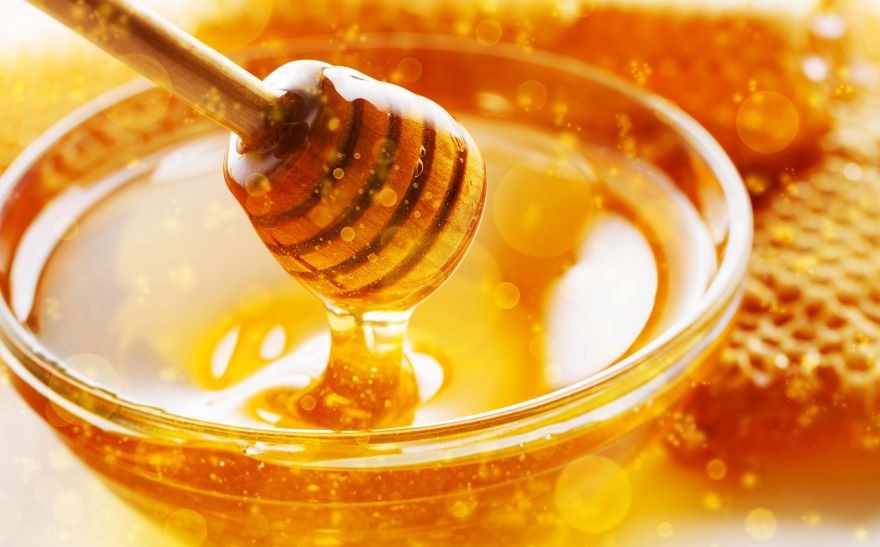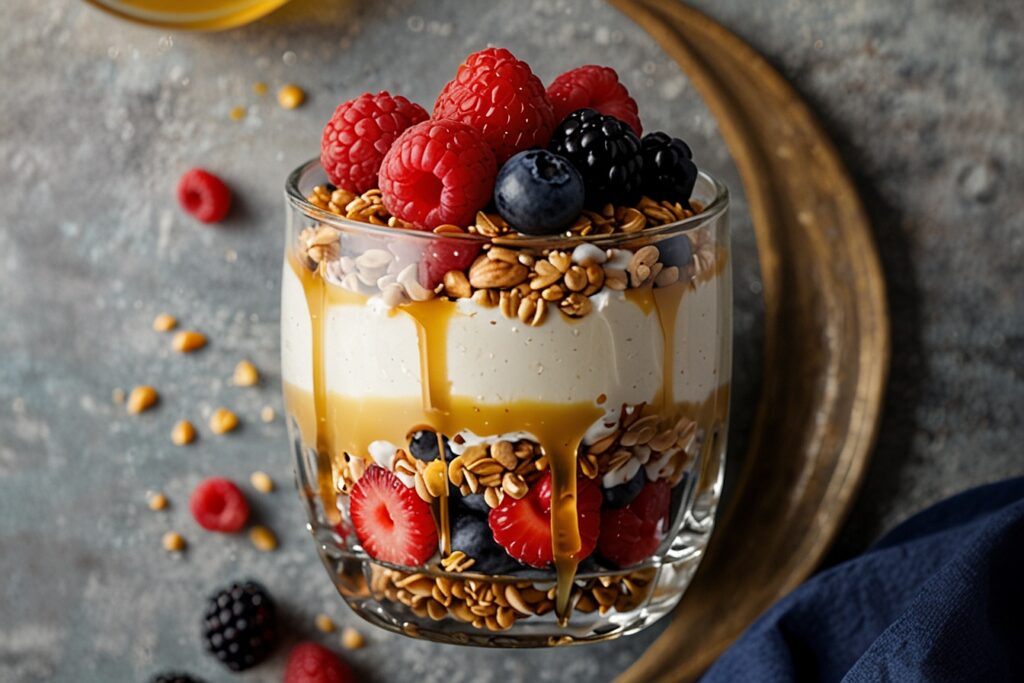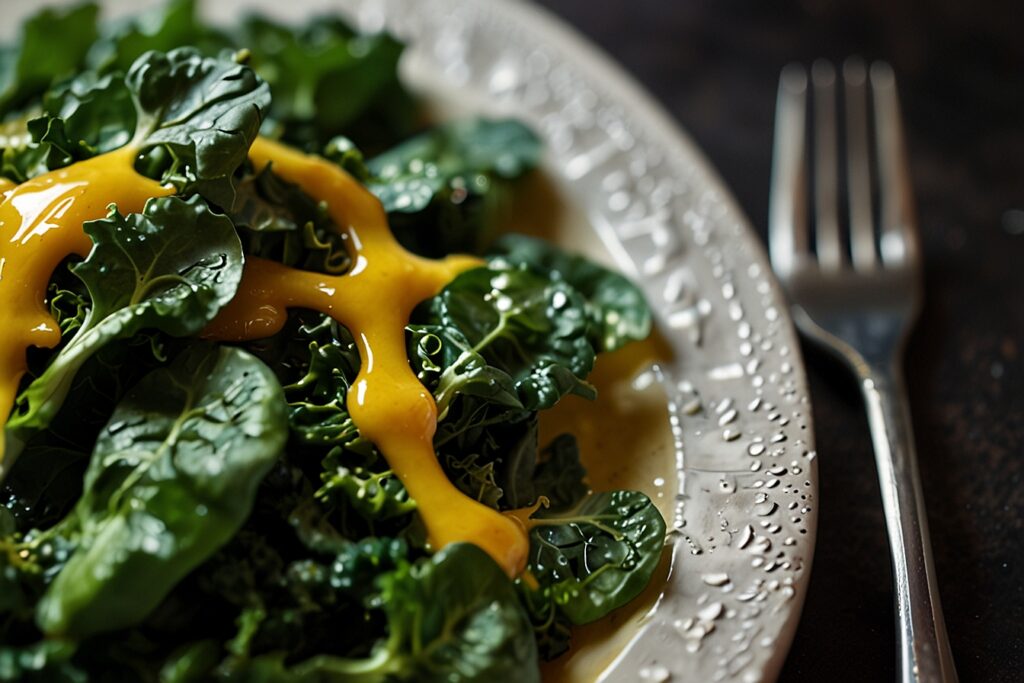Forget kale and quinoa – honey is the unsung hero of the superfood world! This golden nectar, crafted by nature’s tiny alchemists, packs a powerful punch in every sticky, sweet drop. Ancient civilizations knew what was up, using honey as food and medicine.
Today, science backs up what our ancestors instinctively understood: honey is a nutritional powerhouse. It’s loaded with natural sugars for quick energy, plus vitamins and minerals your body craves. But here’s where it gets really exciting: honey’s antioxidant content. These little warriors fight off free radicals, potentially slowing aging and reducing inflammation. It’s like an internal spa day for your cells! Before you channel your inner Winnie the Pooh, remember that moderation is key. If you’re prone to allergies, consult your physician first. For everyone else, embrace the buzz!
Key Takeaways
- Honey is considered a superfood, with both anti-inflammatory benefits and healing properties.
- The antioxidants in honey help shield the body from damage caused by radicals and inflammation.
- If you have allergies to pollen or bee products, be mindful when consuming honey.
The Basics of Honey
Ever since I found out how versatile honey can be in cooking, it has become my sweetener. It’s not limited to tea any more! I’ve also tried drizzling it over yogurt. Using it enhances the flavors of sauces and even substituting sugar with it in some of my baked treats.
Nutritional Value of Honey
Honey is packed with a range of nutrients that make it a beneficial part of our diet. Some of the nutrients found in honey are:
- Sugar : Fructose and glucose in honey provide a quick source of energy.
- Vitamins and minerals: Honey contains trace amounts of B vitamins, vitamin C, calcium, zinc, and magnesium.
- Antioxidants: Honey boasts antioxidants that aid in protecting the body against stress.
Raw Honey vs Pasteurized Honey
When it comes to honey, you’ll find two types on the market: raw honey and pasteurized honey. The key variations between them are as follows:
- Processing: Raw honey is natural and unprocessed, taken from the honeycomb, filtered and bottled. On the side, pasteurized honey undergoes a heating process to eliminate bacteria and prolong its shelf life.
- Nutritional content: Raw honey generally boasts value due to its abundance of enzymes, vitamins, minerals, and antioxidants. Pasteurization may diminish these nutrients.
- Texture and flavor: Raw honey tends to offer a flavor profile and often has a creamier consistency. In contrast, pasteurized honey is smoother in texture, with a milder taste.
To sum up, both types of honey provide health benefits. Opting for raw honey over pasteurized can help you make the most of these advantages.
For those looking to explore the purest form of honey, Nature Nate’s 100% Pure Raw & Unfiltered Organic Honey is an excellent choice. This USDA certified organic honey retains all the natural enzymes and pollen, offering a rich, unadulterated taste and maximum nutritional benefits.
- Nate's 100% Pure, Raw & Unfiltered Honey is a sweetener as nature intended, with one ingredient: Honey. All we add is the bottle.
- PURITY GUARANTEE: Every bottle of Nate's most-trusted honey has a purity guarantee to uphold strict testing standards that provide an unmatched level of care and precision that would make any honeybee proud.
- BEST TASTE: Our blend of honey varietals is crafted for exceptional taste, earning us an award-winning flavor through ChefsBestTM.
- RAW & UNFILTERED: Raw & Unfiltered means it is gently warmed for pourability and unfiltered to keep the natural goodness, like pollen, intact.
- DAILY DRIZZLE: Enjoy Nate's 100% Pure, Raw & Unfiltered Honey on anything needing a little natural sweetness - morning coffee or tea, oatmeal, yogurt - or as a better-for-you sweetener in baked goods.
Health Benefits of Honey
I’ve come to realize that honey offers more than a natural sweetness—it’s actually a powerful superfood with many health advantages. Let’s delve into some of the benefits that honey can provide.
- Natural Remedy for Wounds:
- For centuries, honey has been utilized as a treatment for wounds and burns.
- Specifically, manuka honey has been scientifically proven to have properties that promote wound healing.
- Regulating Blood Sugar Levels:
- As a sweetener, honey leads to an increase in blood sugar levels, but not as fast as refined sugar
- Individuals with diabetes should consume it in moderation due to its sugar content.
- Anti-Inflammatory and Antimicrobial Properties:
- Honey boasts antibacterial qualities.
- It aids in reducing inflammation and defending against infections.
- Enhanced bioactivity can be found in products containing honey like rapeseed creamed honey.
- Supporting Digestive Health:
- Easily digested by the body, honey can help calm a stomach.
- Its anti-inflammatory attributes may ease symptoms of indigestion or acid reflux.
- Incorporating honey into a well-rounded diet can promote digestive wellness.
The Antioxidant Power of Honey
Phytochemicals Present in Honey
When I first learned about the antioxidant benefits of honey, I was truly intrigued by its range of advantages. Honey contains phytochemicals such as flavonoids and phenolic acids that are responsible for its properties. These antioxidants play a role in fighting off radicals that can damage cells and contribute to chronic diseases.
- Quercetin: A type of flavonoid known for its inflammatory and antihistamine properties.
- Pinocembrin: A flavonoid recognized for its effects.
- Chrysin: Another flavonoid with cancer-fighting and anti-inflammatory properties.
Impact of Honey on Aging
I came across some surprising discoveries. It appears that the antioxidants found in honey may have anti-aging effects! Research suggests that these antioxidants in honey could protect against age-related stress, which can lead to damage and a decline in well-being. Incorporating honey into my diet made me realize that its natural antioxidants could help with aging by:
- Reducing inflammation, which is associated with age-related conditions, like arthritis and heart disease.
- Boosting the body’s ability to handle stress and bolstering the system.
- Supporting cognitive health and improving memory and learning abilities.

Superfood Honey
I’ve always been fascinated by the array of flavors and health benefits that honey and superfood honey brings to the table. Superfood honey blends honey, royal jelly, raw bee pollen, and bee propolis extract—each offering incredible health benefits.
Manuka Honey
Manuka honey hails from New Zealand, where bees gather nectar from the native manuka bush. It’s well-known for its antioxidant properties. Studies suggest that manuka honey is very effective in promoting wound-healing health and bolstering the system thanks to its rich methylglyoxal (MGO) content. The Unique Manuka Factor (UMF) rating system categorizes manuka honey into potency levels based on its strength.

Stingless Bees Honey
Stingless bees produce a type of honey known as kelulut honey with remarkable health benefits. This special variety of honey can be found in regions, like Asia, Africa, Australia, and Latin America. Kelulut honey is praised for its antioxidants, inflammatory properties, immune-boosting abilities, and digestive benefits. It stands out with its flavor and color, influenced by the flowers visited by these stingless bees.
The characteristics of stingless bees can differ depending on the region and species they belong to.
Honey in Your Diet
I have always found honey to be an excellent addition to my diet, not only because of its natural sweetness but also for its potential health benefits. Let’s explore some ways to incorporate honey into our daily lives. Let’s delve into some ways to make honey a regular part of our routine.
Using Honey in Tea and Coffee
Honey serves as a substitute for processed sugar or artificial sweeteners when sweetening your morning tea or coffee. It boasts antioxidants like polyphenols that combat radicals. Personally, I like to mix a teaspoon of honey into my tea each morning for a kick of flavor and richness. Trying out different types of honey such as Acacia honey, known for its aroma and sweetness, can elevate the taste of your drink even more.
Honey with Lemon
A go-to method I enjoy is incorporating honey into my diet by preparing a simple honey lemon concoction. It’s effortless; blend the juice from half a lemon with a teaspoon of honey in water. This drink not only delights the taste buds, but also comes with potential health benefits:
- The antibacterial properties in honey can help soothe any throat discomfort.
- The vitamin C from lemons can give your system a boost.
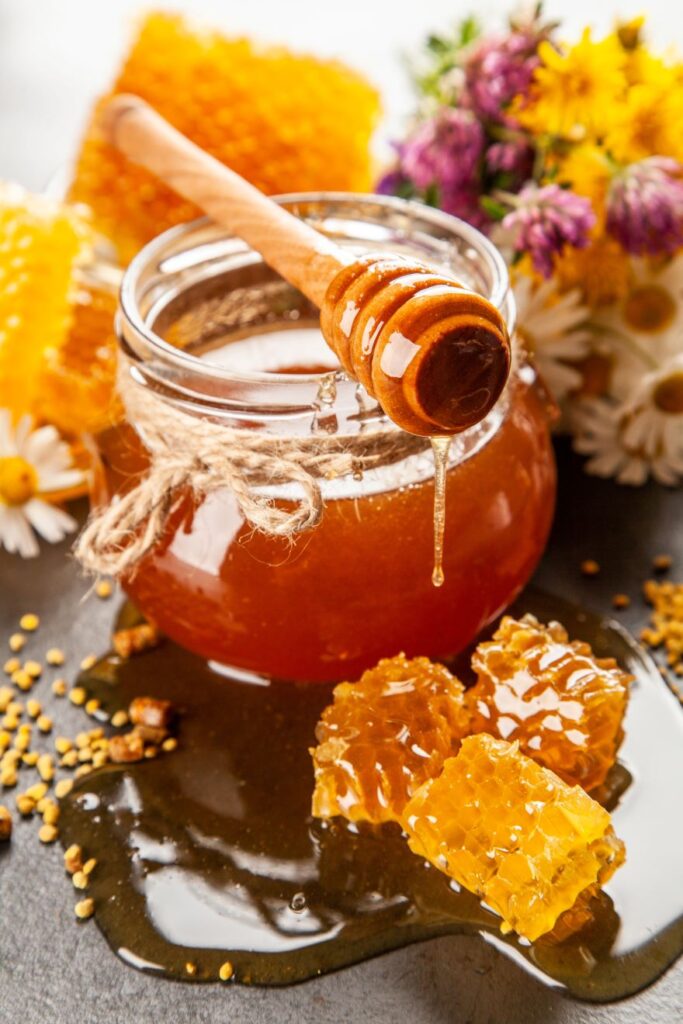
Special Cautions and Alerts
In my experience in studying and enjoying honey, I think it’s important to talk about misunderstandings and potential dangers linked to this sweetener. Here, I’ll delve into the concerns around botulism, and how the term “superfood” can sometimes be misused.
When ingested orally: Honey is generally considered safe for grown-ups. However, honey derived from rhododendron nectar should be avoided as it may contain a toxin that could lead to heart issues, low blood pressure, and chest discomfort.
When used topically or inside the mouth: Honey is typically safe for adults.
When applied to the eyes: Using eye drops containing manuka honey (Optimel Manuka Plus Eye Drops; Melcare, Biomedical Pty Ltd) is considered safe. These eye drops are usually administered into the eyes 2-3 times a day for up to 4 weeks.
When applied to the nose: A diluted solution of manuka honey is generally safe for adults when sprayed into the nose for a maximum of 2 weeks.
Breastfeeding: Consuming honey in small amounts, during pregnancy and breastfeeding is likely safe. However, there isn’t information regarding the safety of using medicinal amounts of honey during these periods. You should always consult your healthcare practitioner for further advice.
Honey and Botulism
Children: In children aged one year or older, oral consumption of honey is generally considered safe.
It’s not safe to give honey to children under 12 months old as it can pose a risk of botulism poisoning at that age. However, honey is generally safe for children and adults.
For individuals with type 2 diabetes, consuming large amounts of honey may lead to an increase in blood sugar levels. It’s important to use honey in moderation due, to its high sugar content.
If you have pollen allergies, it’s advisable to avoid honey since it is made from pollen and could trigger reactions.
One of the main concerns surrounding honey is its association with botulism. Honey, especially raw honey, can carry Clostridium botulinum spores which can cause infant botulism in children under one year of age. To avoid this risk:
- Do not give honey to infants under one year old.
- Be cautious with raw honey as it may have a higher risk of botulism spores compared to processed honey.
Keep in mind that the risk of botulism does not generally extend to older children and adults due to the development of the immune system.
Check out these honeylicious recipes
To make the most of your honey-infused recipes, the Vitamix 5200 Blender is an excellent investment. Its powerful motor and variable speed control allow you to create everything from smooth honey-based dressings to creamy superfood smoothies with ease.
- Variable Speed Control: Easily adjust speed to achieve a variety of textures. The dial can be rotated at any point during the blend, so you’re in complete control
- Large Batches: The size and shape of the self-cleaning 64-ounce container is ideal for blending medium to large batches. Design Feature : Radial cooling fan and thermal protection system
- Hot Soup: The blades in the Vitamix container reach speeds fast enough to create friction heat, bringing cold ingredients to steaming hot in about six minutes
- Hardened Stainless-Steel Blades: Our aircraft-grade stainless steel blades are designed to handle the toughest ingredients, so from the first blend to the last, you get the same quality results
- Self-Cleaning: With a drop of dish soap and warm water, your Vitamix machine can clean itself in 30 to 60 seconds
Final Thoughts
Putting aside the talk, honey is more than a treat from nature. It showcases the cleverness of bees and the beauty of our natural surroundings. Whether you’re drizzling it on yogurt, mixing it into tea, or using it for its healing properties, each golden droplet is a treasure trove of possibilities. So the next time you grab that jar of honey, and artificial sugars, honey shines as a reminder that sometimes the best things are crafted in natural ways with a touch of help from our striped friends in flight. Now, excuse me while I go search my pantry for some of that gold!
Beekeeper’s Naturals Superfood Honey enriches this raw honey with propolis, royal jelly, and bee pollen, providing a blend of health perks.
If you’re interested in trying Beekeeper’s Naturals Superfood Honey, you can find it on Amazon here:
- PURE HIVE POWER: Beekeeper's Naturals Superfood Honey combines sustainably sourced ingredients of the hive to nourish your mind and body. This exclusive blend combines raw, enzymatic honey with propolis, royal jelly, and bee pollen to deliver lasting energy, immune support, and overall wellbeing.
- NATURAL ENERGY: Fuel your workout, your morning routine or skip the mid-day slump without caffeine or refined sugars. Superfood Honey promotes overall balance and healthy natural energy levels over time. Superfood Honey is gluten-free, Paleo-friendly, and natural nutritional supplement.
- IMMUNE SUPPORT: Bee propolis is the hive defender. With powerful protective properties and 300+ beneficial compounds, it naturally supports a healthy immune system.
- MENTAL CLARITY & ATHLETIC PERFORMANCE: Royal jelly provides valuable fatty acids that promote brain health and fight brain fog. Take a spoonful when you need to find your flow. Skip the highly processed energy drinks and sports gels! Take a teaspoon before an intense workout for natural energy, as well as strength, endurance, and recovery support.
- HOW WE SOURCE: We never overharvest from our hives and always ensure that our green apiaries are remote and far from harmful chemicals. Product packaging may vary as we refreshed our packaging and are currently transitioning between old and new packaging. Our ingredients & formula that you know and love remain the same!
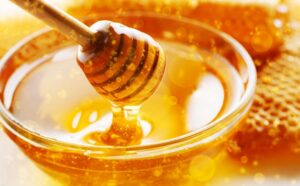
*We may earn a commission for purchases made using our links. Please see our disclosure to learn more.

